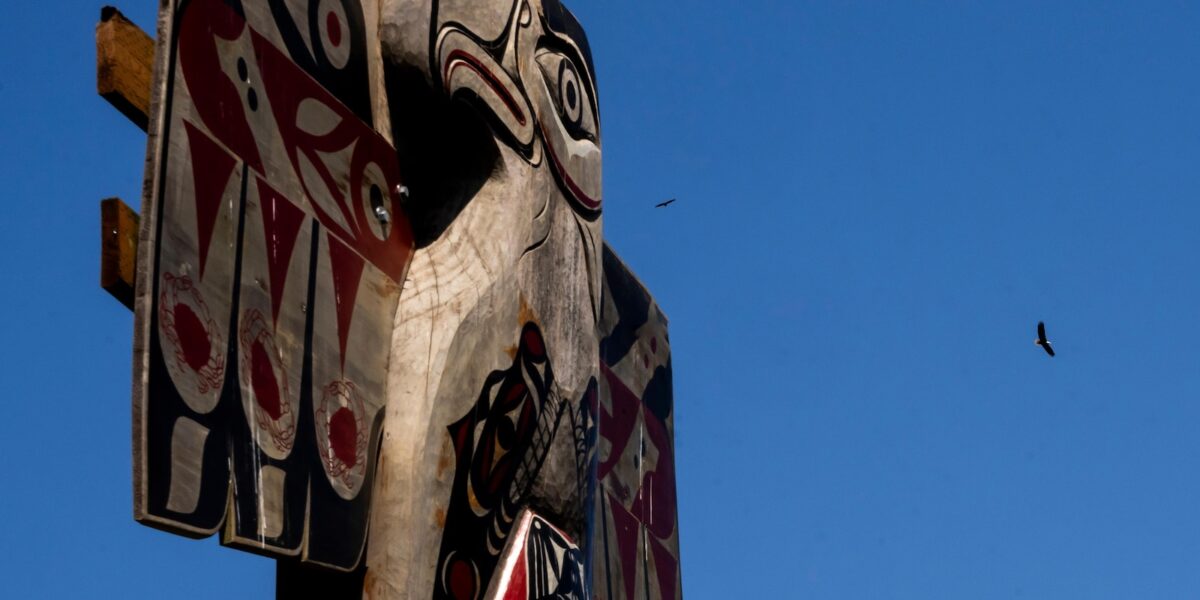SEATTLE — Coastal tribes in the Pacific Northwest experience some of the most severe effects of climate change — from rising seas to severe heat — but face an array of bureaucratic barriers to access government funds meant to help them adapt, a report released Monday found.
The tribes are leaders in combatting climate change in their region, but as they seek money for specific projects to address its repercussions, such as relocating a village threatened by rising waters, they often can’t provide the matching funds that many grants require or the necessary staff or struggle with stringent application requirements, according to the report by the Northwest Climate Resilience Collaborative. If they do get funding, it’s often a small amount that can only be used for very specific projects when this work is typically much more holistic, the report found.
“Trying to do projects by piecing together grants that all have different requirements and different strings attached, without staff capacity is a challenge,” Robert Knapp, environmental planning manager at the Jamestown S’Klallam Tribe in northwest Washington, said in the report.
The collaborative, funded by the National Oceanic and Atmospheric Administration, spent two years holding listening sessions with 13 tribes along the Pacific Coast of Oregon and Washington, the Strait of Juan de Fuca and the Puget Sound. The communities face significant challenges from coastal flooding and erosion, rising stream temperatures, declining snowpack, severe heat events and increasing wildfire risk.
In addition to funding challenges, those interviewed also described not having enough staff to adequately respond to climate change as well as sometimes not being able to partner with state and local governments and universities in this work because of their remote locations. They also said it can be hard to explain the impact climate change is having to people who don’t live in their communities.
But as they work to restore salmon habitats affected by warming waters or move their homes, funding gaps and complications were key concerns.
A representative from one anonymous tribe in the report said it was not able to hire a grant writer and had to rely on its biology department to navigate the maze of funding applications. Another talked about depending on 15 separate funders just to build a marina.
“This is a time of historic state and federal investment in climate action, and tribal priorities really need to be considered when making decisions around how we’re going to be directing this investment,” said Meade Krosby, senior author of the report. “Hopefully this will help to inform how this work is being done, how these funds are being directed, so that they are actually responsive to the barriers that tribes are facing and helping to remove some of those barriers so the tribes can get the good work done.”
Most of the tribes included in the report had completed publicly available reports on the impacts of climate change, and some had developed detailed plans for relocation as rising waters threaten buildings, or even entire villages.
The Quinault Indian Nation, in Washington’s Olympic Peninsula, has a plan for relocating its largest village. The multimillion-dollar effort has relied on a piecemeal of federal and state grants and the constraints that come with them, Gary Morishima, Quinault’s natural resources technical adviser, explained in the report.
Other tribes brought up concerns about competing against other tribal nations for funding when collaboration is such a vital part of responding to climate change. Tribal lands share borders and coastlines, and the impacts of climate change on those lands do not stop at any border, the report pointed out.
Amelia Marchand, citizen of the Confederated Tribes of the Colville Reservation and another author of the report, explained that it comes down to the federal government fulfilling its trust responsibility to tribes.
“The treaty is supposed to support and uplift and ensure that what the tribes need for continued existence is maintained,” she said. “And that’s one of the issues with not having this coordinated federal response because different federal agencies are doing different things.”
Millions of dollars have gone to coastal tribes, and the report said much more is needed. The report referenced a 2020 Bureau of Indian Affairs report that estimated that tribes in the lower 48 states would need $1.9 billion over the next half-century for infrastructure needs related to climate change.
Amid all the challenges, Pacific Northwest tribes are still leaders in climate adaptation and have plenty to teach other communities, Marchand said.
“Finding ways to make their progress happen for their nations and their communities despite those odds is one of the most inspiring and hopeful resilient stories,” she said.


